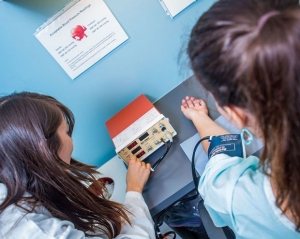According to Jennifer McGrath, associate professor in Concordia’s Department of Psychology and director of its Pediatric Public Health Psychology (PPHP) Laboratory, when it comes to certain adult health outcomes, a child’s understanding of his or her social and economic status may prove to be a more significant factor than the reality, past or present. “We look at several health behaviours and health risks during childhood; that’s often when lifestyle behaviours are established,” says McGrath.
She and her collaborators from Montreal and around the world study the impact of unequal incomes on health. McGrath, also principal member of the university’s Centre for Clinical Research in Health, is distinguished for her innovative interdisciplinary approach and statistical modelling expertise.
“There’s fascinating work demonstrating that even if your socioeconomic status changes over time, behaviours and phenomena get ingrained during childhood,” she says. “Low socioeconomic status during early childhood not only affects child health, it jeopardizes future health.”
McGrath looks to untangle how self-perception may relate to health status. For example, a child who feels inferior, isolated or low on the playground’s totem pole may perceive him- or herself in a manner that could foreshadow cardiovascular disease or other future health issues –– even if the child lives in a supportive, upper-middle-class environment. “There is in fact work that suggests your perception matters more than objective measures,” she says.
 Jennifer McGrath’s research has made headlines in the Montreal Gazette andTime magazine.
Jennifer McGrath’s research has made headlines in the Montreal Gazette andTime magazine.
 Jennifer McGrath (right), director of Concordia’s pediatric public health psychology laboratory, is among the top five per cent of funded researchers in Canada.
Jennifer McGrath (right), director of Concordia’s pediatric public health psychology laboratory, is among the top five per cent of funded researchers in Canada.
 Research at the pediatric public health psychology laboratory includes using sleep monitors, like the one pictured above, to monitor connections between childhood stress and shorter sleep duration.
Research at the pediatric public health psychology laboratory includes using sleep monitors, like the one pictured above, to monitor connections between childhood stress and shorter sleep duration.
 Concordia’s Pediatric Public Health Psychology (PPHP) Laboratory
Concordia’s Pediatric Public Health Psychology (PPHP) Laboratory